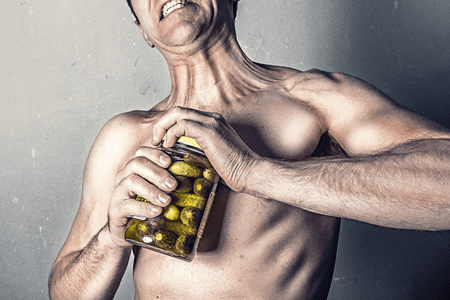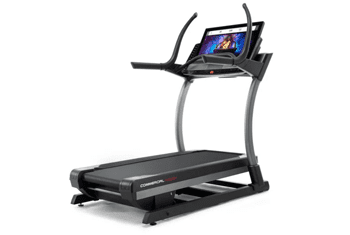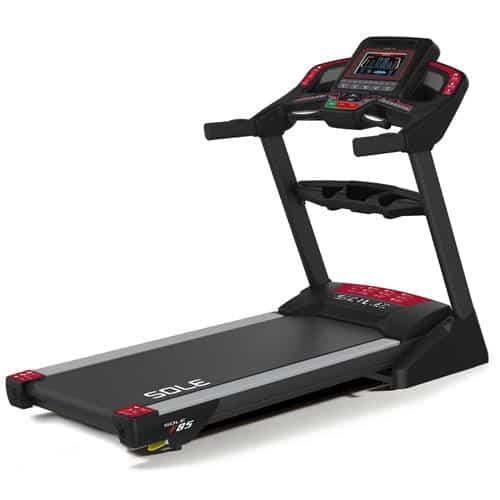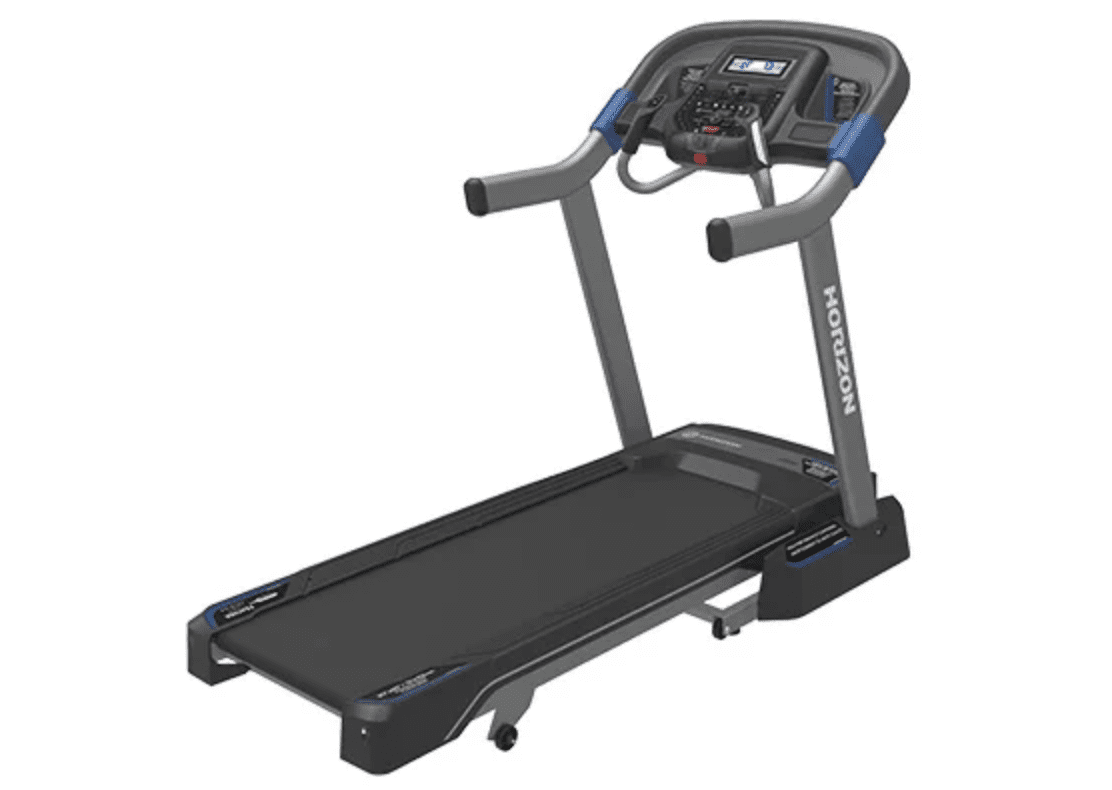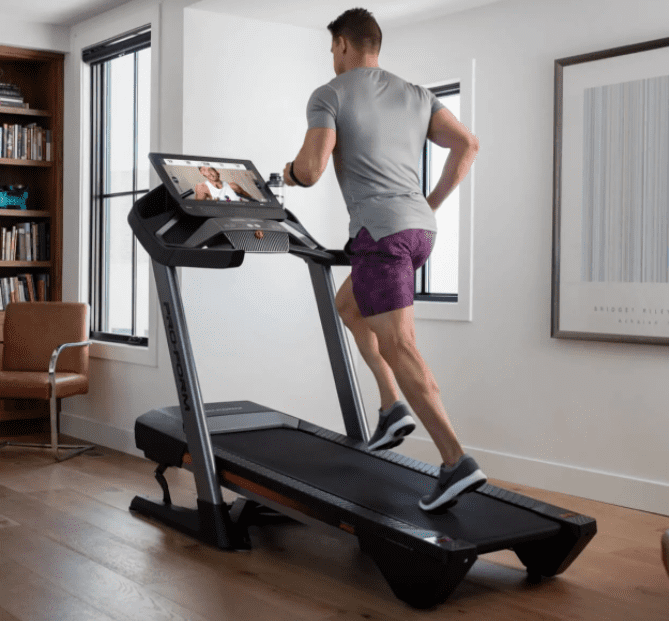Table of Contents
Proper Hydration Should Be a Daily Priority
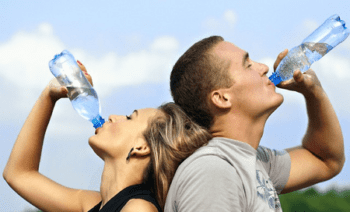
It’s even more important when you’re doing any sort of physical activity.
And downing a bottle of water when you get thirsty doesn’t always cut it!
Staying hydrated is a key factor in staying healthy. When you’re dehydrated you don’t feel your best and can’t perform to the best of your ability.
Why Fluid is So Important
Fluids allow your body to perform many of the functions that keep you going throughout the day.
Blood contains a lot of water, and fluids help maintain your blood volume. Less fluid in your body means a lower blood volume to be distributed. Maintaining higher blood volume with good hydration means that your blood can deliver the nutrients and oxygen you need to get work done.
Fluids also have a huge impact on your muscles…
Just like the rest of your body, your muscles are made primarily of water. When you don’t have enough water in your body, your muscles are not able to contract as strongly and have slower responses. Fluids are the delivery system of vital electrolytes to your muscles. Dehydration and lack of electrolytes are the leading causes of painful muscles cramps.
Next, let’s talk about sweat…
When you work out and exert energy, you sweat. This is your body’s way of regulating your body temperature. Your body and your mind don’t function the way they should when they are too hot. When sweat evaporates from your skin, it removes heat and helps you cool off, but it’s removing the fluid from your body along with it.
Drinking fluids while you exercise is necessary to replace the fluids that you lose when you sweat. Without replenishing lost fluids you can experience a decrease in muscle function, overall performance and feel the effects of heat stress.
How Does Fluid Intake Affect Performance

Improper hydration can affect your body temperature, heart rate, mental performance, and even your digestion!
After just 2% of your body mass is lost from sweating, your body temperature and heart rate will increase, which makes activity seem harder. You also begin to lose physical and mental performance because of the increased strain on your body.
For a 150 lb person, a 2% fluid loss is only about 48 oz or 6 cups of water. This is a small amount that has a dramatic effect on your body.
Once you lose more than 2% of your body mass from water, you start to risk nausea, diarrhea, vomiting and other gastro-intestinal issues. The less fluid you have in your body, the less your intestines can take in.
This makes it more difficult to rehydrate because your intestines can’t absorb the new liquid you put in as quickly as normal. This is why many people end up feeling sick or bloated when they try to drink a lot of fluid right after exercise.
Is It Possible To Drink Too Much Water?
While it’s easy to get dehydrated during exercise, it is possible to over hydrate too.
The amount of fluid that our bodies need is a balance that we have to work to maintain. Drinking too much fluid can have negative effects on your body the same way that becoming dehydrated can. When you drink too much during exercise, you dilute the amount of electrolytes that are in your blood. This can cause you to get headaches, suffer muscle cramps, become disoriented, and even fall into a coma!
Electrolytes are substances like potassium, sodium, calcium, magnesium and bicarbonates that help your body use and retain water properly. These charged particles help your body maintain a fluid balance, prevent cramping, regulate your heart rate, and relax your muscles.
Water is fantastic, but balance your intake with these electrolytes for optimal hydration.
TIP: If you feel especially fatigued after a tough run and water isn’t satisfying you – get some quick electrolytes from pure pickle juice right from the jar!
While it is far more likely to suffer from dehydration, it’s important to know that you can go too far in the other direction. To know how much you should be drinking, the most important factor is knowing how much you are losing.
How To Estimate Your Fluid Loss
Estimating your fluid loss during exercise is pretty simple.
- Weigh yourself before your workout, making sure you’re wearing minimal clothing so you aren’t adding weight.
- Get in your sweat session!
- After you’re done, weigh yourself again wearing the same amount of clothing. Take into account any water that you decided to drink midway through your workout.
The change in your body weight tells you how much fluid you have lost through sweat. One pound equals roughly 16 ounces of fluid.
Tips for How Much Fluid to Drink and When
- Stay hydrated even when you aren’t doing any activity. Maintaining good hydration before you’re working out will help to keep you from getting dehydrated once you start.
- Come up with some kind of plan to keep yourself drinking fluids while working out. Set a timer to remind yourself. Or get some fluids after you’ve covered a certain distance if you’re running, cycling or using the elliptical.
- Just because you don’t feel thirsty doesn’t mean you aren’t getting dehydrated. Waiting until you feel thirsty usually means that you are already dehydrated, it’s your body’s way of letting you know!
- You have to keep hydrating! You continue to lose fluid even after you are done with your workout. A good rule of thumb is to replace about 150% of your fluid loss over the 2-6 hours after exercising.
What Should You Drink?
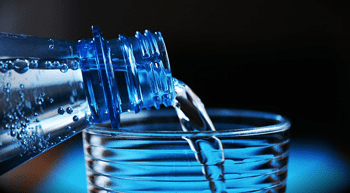
Sports Drinks – Sports drinks provide fluid replacement with the added benefits of carbohydrates and electrolytes. These additions make them great for high intensity and endurance exercise. Plus, they taste good which gives you one more reason to drink your fluids!
Caffeine – While small doses of caffeine can help you feel more energetic and make exercise seem easier for a short period of time, it is not a substitute for water or sports drinks.
Alcohol – Alcohol is not a substitute for water or sports drinks for hydration. It can hinder your body’s recovery processes. If you choose to drink alcohol after exercise, drink responsibly and be sure to drink water in larger quantities.
Even Indoor Workouts Need Fluid Replacement
Water may seem less essential when you trade a hot and muggy outdoor run for a jaunt on your indoor home treadmill. Air conditioning is surly a wonderful thing.
But you can still become dehydrated, so don’t use this as an excuse to skip the fluids.
Put your hydration plan into action! Using the screen on your treadmill to check your time or distance is an easy and convenient way to remember your fluids.
Taking care of our bodies by keeping them hydrated is a simple way to feel better every day. It doesn’t take much time or energy and makes all the difference! Remember your hydration guidelines and enjoy every workout safely.
Your body will thank you for it.
Sources:
-
https://www.bodybuilding.com/fun/behar12.htm Understanding the Importance of Proper Hydration for Maximum Gains In and Out of the Gym: Jeff Behar; 2014
-
https://www.ncbi.nlm.nih.gov/pmc/articles/PMC2908954/ Water, Hydration and Health Barry M. Popkin, Kristen E. D’Anci, and Irwin H. Rosenberg; 2010
-
https://www.camelbak.com/en/hydrated/hydration-tips/hydration-and-blood-volume HOW HYDRATION IMPACTS BLOOD VOLUME (AND WHY THAT MATTERS) Matt Dixon
-
https://www.sportsdietitians.com.au/wp-content/uploads/2015/04/Fluids-in-sport.pdf Sports Dietitians Australia; June 2009

